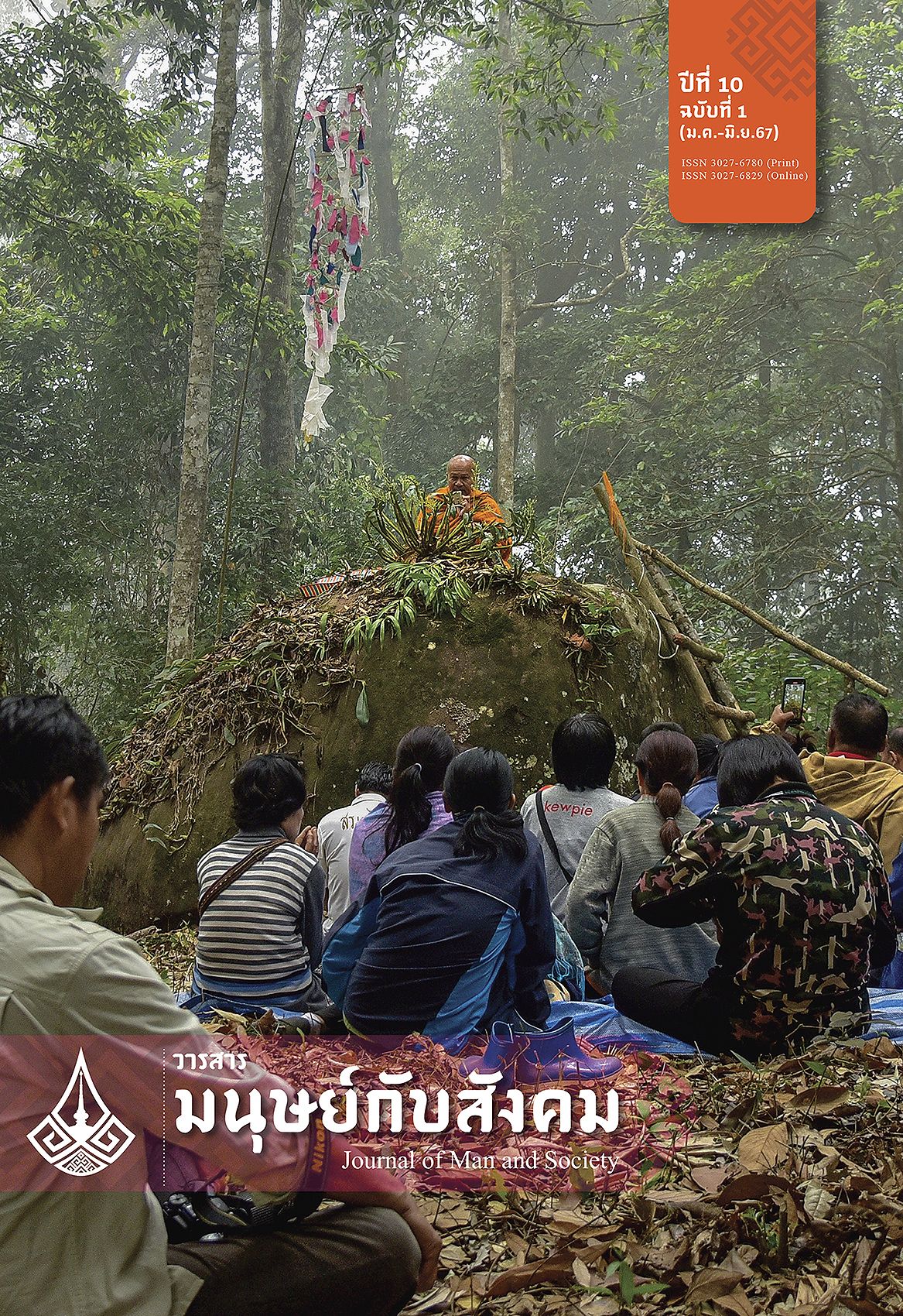การใช้การสอนภาษาเพื่อการสื่อสารและการเรียนรู้โดยใช้กิจกรรมเป็นฐาน เพื่อพัฒนาความสามารถด้านการเรียนรู้คำศัพท์ภาษาอังกฤษของนักเรียนชั้นประถมศึกษาปีที่ 5
Main Article Content
บทคัดย่อ
บทความนี้มีวัตถุประสงค์เพื่อ 1) เปรียบเทียบความรู้คำศัพท์ภาษาอังกฤษของนักเรียนก่อนเรียนและหลังเรียน โดยใช้การสอนภาษาเพื่อการสื่อสาร และการเรียนรู้โดยใช้กิจกรรมเป็นฐาน 2) ศึกษาความคงทนในการจดจำคำศัพท์ภาษาอังกฤษหลังจากเรียน โดยใช้การสอนภาษาเพื่อการสื่อสาร และการเรียนรู้โดยใช้กิจกรรมเป็นฐาน 3) ศึกษาเจตคติของนักเรียนต่อการสอนคำศัพท์ภาษาอังกฤษ โดยใช้การสอนภาษาเพื่อการสื่อสาร และการเรียนรู้โดยใช้กิจกรรมเป็นฐาน กลุ่มตัวอย่างประกอบด้วย นักเรียนชั้นประถมศึกษาปีที่ 5 โรงเรียนบ้านหนองกุงหนองเจริญ อำเภอกุดจับ จังหวัดอุดรธานี จำนวน 20 คน ในภาคเรียนที่ 1 ปีการศึกษา 2566 โดยการสุ่มแบบกลุ่ม แบบแผนการวิจัยเป็นการวิจัยเชิงทดลองแบบกลุ่มเดียว ทดสอบก่อนเรียนและหลังเรียน เครื่องมือที่ใช้ในการวิจัย ประกอบไปด้วย แผนการสอน จำนวน 12 แผน แบบทดสอบวัดความรู้คำศัพท์ภาษาอังกฤษ และแบบวัดเจตคติ ดำเนินการวิจัยใช้เวลา 12 สัปดาห์ 2 ชั่วโมงต่อสัปดาห์ รวมเป็น 24 ชั่วโมง สถิติที่ใช้ในการวิเคราะห์ข้อมูลได้แก่ ค่าเฉลี่ย ร้อยละ ส่วนเบี่ยงเบนมาตรฐาน และการทดสอบทีแบบกลุ่มเดียวและการทดสอบที่แบบไม่อิสระ ผลการวิจัยพบว่า 1) นักเรียนมีคะแนนความรู้คำศัพท์ภาษาอังกฤษ คะแนนเฉลี่ยก่อนเรียน คิดเป็น 20.11 คะแนน (40.23%) และหลังเรียนคิดเป็น 39.66 คะแนน (79.32%) ผลการวิจัยพบว่า นักเรียนมีความรู้คำศัพท์ภาษาอังกฤษหลังเรียนสูงกว่าก่อนเรียน และสูงกว่าเกณฑ์ร้อยละ 70 2) นักเรียนมีคะแนนทดสอบหลังเรียนครั้งที่ 1 เฉลี่ย 39.66 และครั้งที่ 2 อยู่ที่ 39.22 ผลการวิจัยแสดงให้เห็นว่า ไม่มีความแตกต่างอย่างมีนัยสำคัญระหว่างค่าเฉลี่ยของคะแนนหลังสอบครั้งที่ 1 และครั้งที่ 2 แสดงให้เห็นว่านักเรียนมีความคงทนในการจำคำศัพท์ภาษาอังกฤษผ่านการเรียนโดยใช้การสอนภาษาเพื่อการสื่อสาร และการเรียนรู้โดยใช้กิจกรรมเป็นฐาน 3) นักเรียนมีเจตคติต่อการสอนคำศัพท์ภาษาอังกฤษโดยการสอนภาษาเพื่อการสื่อสาร และการเรียนรู้โดยใช้กิจกรรมเป็นฐาน มีค่าเฉลี่ยอยู่ที่ 4.67 ซึ่งอยู่ในระดับดีมาก
Article Details

อนุญาตภายใต้เงื่อนไข Creative Commons Attribution-NonCommercial-NoDerivatives 4.0 International License.
เนื้อหาและข้อมูลที่ตีพิมพ์ลงในวารสารมนุษย์กับสังคม ถือเป็นข้อคิดเห็นและความรับผิดชอบโดยตรงของผู้เขียนซึ่งกองบรรณาธิการวารสารไม่จำเป็นต้องเห็นด้วยหรือร่วมรับผิดชอบใดๆ
บทความ ข้อมูล เนื้อหา รูปภาพ ฯลฯ ที่ได้รับการตีพิมพ์ในวารสารมนุษย์กับสังคม ถือเป็นลิขสิทธิ์ของวารสาร หากบุคคลหรือหน่วยงานใดต้องการนำทั้งหมดหรือส่วนหนึ่งส่วนใดไปเผยแพร่ต่อหรือเพื่่อกระทำการใดๆ จะต้องได้รับอนุญาตเป็นลายลักษณ์อักษรจากวารสารมนุษย์กับสังคมก่อน
เอกสารอ้างอิง
Alabsi, T. (2016). The Effectiveness of Role Play Strategy in Teaching Vocabulary. Theory and practice in language studies, 6(2), 227-234.
Ayotola, A., & Ishola, S. (2013). Preparation of primary teachers in pupil-centered Activity based mathematics instructions and its model. In European Scientific Institute. (Eds.), Proceeding of 1st Annual International Inter Disciplinary Conferenc, AIIC 2013. (pp. 356-371). Researchgate. https://www.researchgate.net/publication/346628698_PREPARATION_OF_PRIMARY_TEACHERS_IN_PUPIL-CENTRED_ACTIVITY-BASED_MATHEMATICS_INSTRUCTIONS_AND_ITS_MODEL
Brown, H. D. (2007). Principles of Language Learning and Teaching. Pearson Education.
Campbell, D. T., & Stanley, J. C. (1963). Experimental and Quasi-Experimental Designs for Research. Rand McNally.
Hamdan, M., & Alharbi, N. (2017). The Effectiveness of Semantic Mapping Strategy on Vocabulary Achievement of EFL Saudi Female Preparatory-Year Students. Journal of Applied Linguistics and Language Research, 4(7), 14 – 46.
Harfield, T., Davies, K., Hede, J., Panko, M., & Kenley, R. (2007). Activity-based teaching for Unitec New Zealand construction students. Emirates Journal for Engineering Research, 12(1), 57-63.
Harmer, J. (2015). The practice of English language teaching (5th ed.). Cambridge University.
Hill, A. (2022, 8 February). The 11 Most Spoken Languages in the World in 2022. Rubric. https://rubric.com/en-US/most-spoken-languages-in-the-world/
Khamanee, T. (2002). A Variety of Alternative Teaching Styles. Chulalongkorn University.
Kuder, G. F., & Richardson, M. W. (1937). The Theory of Estimation of Test Reliability. Psychmetrika, 2, 151-160.
Muangkod, K. (2010). Development of English Vocabulary Learning of Prathomsuksa 4 Students Through Communicative Language Teaching Model. [Master of Education (Elementary Education). Chiangmai University]. CMU Intellectual Repository. http://cmuir.cmu.ac.th/handle/6653943832/12819
Norarian, P., & Sithsungnoen, C. (2020). Managing Activity-Based Learning Combined with Multimedia to Develop Listening and Speaking Ability for Prathomsueksa 2 Students. Journal of Humanities and Social Sciences Review, 22(2), 46-61.
Panko, M., et al. (2005). Learning styles of those in the building and construction sector. Report for Building Research New Zealand. Auckland.
Scot, A. W. (1995). Reliability of Content analysis: The case of Nominal Scale Coding. Public Opinion Quarterly, 19(3), 321-325.
Talabklang, P. (2019). The development of vocabulary learning achievement using activity-based learning for Prothomsuksa 2 students of Wat Khiankhet School. Rajapark Journal, 13(31), 195-208.


